
New Zealand has acquired the distinction of being the world's most peaceful nation for the second year running, according to the Global Peace Index.
The Institute for Economics and Peace, a global think-tank, compiles global rankings of the most peaceful countries by rating them on parameters like economic development, business and peace and their interactions.
New Zealand bagged the top position owing to its political stability, internal safety, equanimity and healthy relations with neighbours like Australia.

The Kiwis were followed by Iceland and Japan in the poll, while Austria and Norway rounded out the top five.
The Scandinavian countries also dominate the top spots in other studies which evaluate countries on the basis of their standard of living, safety and press freedom.
According to the Daily Express, the Global Peace Index examines key areas of conflict, safety, security and military factors in 149 countries.
Their latest index suggested that the world has become slightly less peaceful in the past 12 months.

Japan, at no. 3 spot, was the highest ranking Asian nation in the report. The land of the rising sun has successfully shed off its violent history of imperialism to emerge as one of the most peaceful nations on earth.
The countries were ranked on parameters such as the number of conflicts fought, the likelihood of violent demonstrations and the level of security required per capita.

The United States improved its 2010 GPI score, registering its biggest year-on-year improvement since the first Index was released in 2007. The improvement came as a result of a decrease in the number of deaths from external conflict and an increase in political stability.
In 2007, the US was ranked at 96. The 2010 GPI ranks Uncle Sam at the 85th spot.
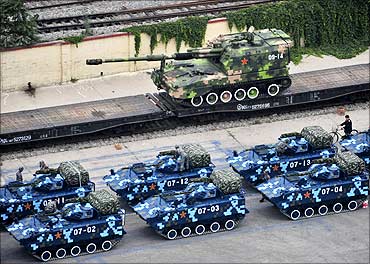
China saw its score deteriorate because of worsening security in parts of the country, notably Xinjiang province, where violent conflict prompted a fall in several measures of societal safety, the report said.
From the 60th spot in 2007, the communist nation has fallen to the 80th spot in 2010.
The only study to quantify global peacefulness, the GPI is produced by the Institute for Economics and Peace. According to the report, South Asia saw the greatest decrease in peacefulness, as a result of increased involvement in conflicts, a rise in deaths from internal conflict and human rights abuses.
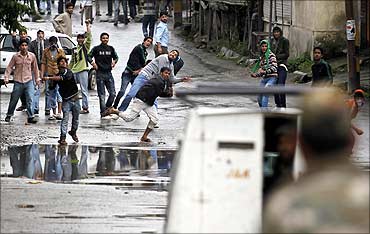
India has slipped to the 128th position in the Global Peace Index ranking with the country, along with neighbours Pakistan and Sri Lanka, experiencing more incidents of internal conflicts, terrorism and human rights abuses.
In 2007, it was ranked 109th in the index.
The main countries experiencing decreases in peacefulness were India, Sri Lanka and Pakistan. The three BRIC countries --Russia (143), India (128) and China (80) -- saw substantial declines in peacefulness, while Brazil's score remained essentially stable (83) compared to the 2009 Index.
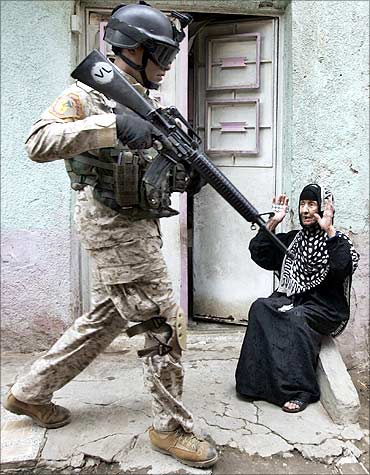
The war-torn Gulf nation of Iraq earned the ignominious top spot as the 'last peaceful nation' for a dismal fourth consecutive year.
Iraq, Somalia and Afghanistan were the least peaceful countries for the second consecutive year. Syria, Georgia, the Philippines, Russia and Cyprus recorded this year's biggest falls, the report said.

Somalia is the second least peaceful nation in the world. The African nation has been plagued by civil war, weak governments and shocking rise in militancy in the last few years. The international community is worried about the growth of Islamic terrorism and rampant piracy in the conflict-torn nation.
As the global economy continues to falter, this year's data shows an intensification of conflicts and growing instability linked to the downturn that began in 2008, with several countries seeing sharp increases in homicides, violent demonstrations and fear of crime.
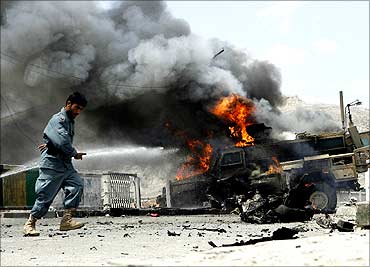
Afghanistan, which is repeatedly ranked among the most dangerous places on earth, also finds itself at the bottom of the list. The main victim of the United State's war on terror ranked at a dismal 147 among 149 nations.
"How peaceful a country is depends on the internal structures, institutions, and attitudes that sustain and promote peace as well as on external factors," said Clyde McConaghy, board director of the IEP.
"This year's top five countries, and more peaceful countries in general, have certain things in common: well functioning governments, stable business environments, respect for human rights, low levels of corruption, high rates of participation in education, and freedom of information," McConaghy said.
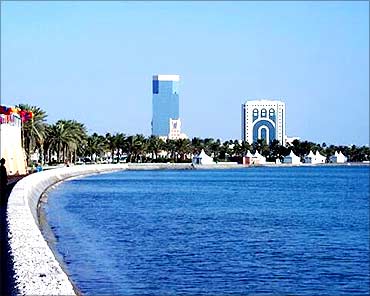
At 15, Qatar is the highest ranking Islamic nation in the list. The country has also registered an impressive rise in the last few years, reaching the top 15 after starting at 30 in the 2007 list.
Not surprisingly, Western Europe continues to be the most peaceful region, with the majority of the countries ranking in the top 20.
All five Scandinavian nations rank in the top ten. However, Denmark dropped five spots to 7 because of a decrease in respect for human rights and continuing involvement in Afghanistan.